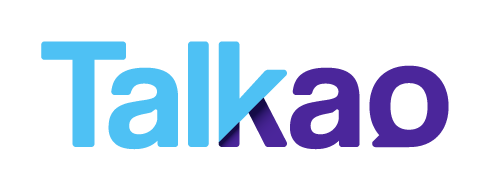Are you thinking about signing up for language classes but still feeling unsure? Today, we’re here to show you just how profitable language classes really are. What may seem like a superficial expense can actually become one of the best investments of your life.
That’s right—language learning is not a waste of money, nor is it a cost that won’t pay off. On the contrary, every cent you spend on learning a language will come back to you multiplied.
Today, we’re stepping into the role of financial analysts. We’ll break down the real and practical language classes finances. You’ll discover why they’re one of the smartest decisions you can make for both your present and your future. Plus, we’ll show you how language learning is a powerful accelerator for your career success.
We’ll also take a closer look at how AI-powered predictive translation technologies can enhance the value of your investment and support your progress.
And if that’s not enough, we’ll talk about how language learning also fuels personal growth, making it an invaluable experience on multiple levels.
So grab a notebook, a pen, and a calculator—because today, we’re diving into the numbers. Let’s do the math!
Language classes: An investment, not an expense — What’s the difference?
We’ll talk later about how language learning contributes to personal growth and self-improvement. But before we get there, let’s approach the topic from a purely financial perspective. In other words: Why should you consider language classes an investment and not an expense? To answer that, we need to start by distinguishing between the two concepts—learning how to tell a cost from an investment.
Don’t worry—we’re not going to dive deep into complex financial or accounting theory. That would take us far from our real goal. But it’s helpful to review a few basic concepts to better understand the value of language education. Let’s take a quick look at the main differences between an expense and an investment.
An expense is not an investment. An investment is not an expense
Sure, this might sound like a riddle. But as you’ll soon see, this distinction is crucial—especially because many people mistakenly treat both concepts as the same. And for you, understanding this difference can have a big impact on your motivation, commitment, and results.
The first thing that comes to mind when considering language classes is the money coming out of your pocket. That’s natural. You’ll pay for enrollment fees, textbooks, digital tools, and private lessons… it all adds up. But here’s the key question:
Are you spending or investing?
This shift in mindset can completely change your perspective—and your outcomes. So, let’s break it down.
What is an expense?
Let’s start with the basics. From a financial standpoint, an expense is an outflow of money that does not generate a return. It’s something you consume, and once used, it’s gone.
That doesn’t mean expenses are inherently bad. We all need to spend on things like food, utilities, clothes, or entertainment. These are normal, recurring costs for goods and services. But once consumed, there’s no direct benefit coming back to you financially or otherwise.
What is an investment?
An investment, on the other hand, is a money outlay made with the expectation of future benefits. These returns can be financial, professional, personal, or even emotional.
When you invest, you’re thinking in terms of growth, improvement, and long-term gains. That’s why, if you see language classes as just another monthly bill, you’ll likely end up questioning their value—or quitting altogether.
But if you understand that language classes are an investment in yourself, everything changes. You’ll realize that the money you spend today will come back to you—in the form of:
- Better job prospects
- Greater freedom and mobility
- Increased self-confidence
- More career and personal opportunities
This simple shift in perspective completely changes your commitment and consistency.
Of course, your learning journey will be even more effective with the help of modern tools. In upcoming sections, you’ll see how AI-powered predictive translation and multilingual conversational AI enhance your return on investment and accelerate results.
But for now, let’s focus on one core idea:
Language classes aren’t a cost. They’re a smart investment in your future.

Why language classes are an investment—Not an expense
We’ve already reviewed, albeit briefly, the difference between an investment and an expense. But what we haven’t addressed yet is why language classes specifically qualify as an investment—or more precisely, why they are one of the best investments you can make.
To sharpen your financial mindset, it’s essential to understand that every cent you invest in language learning will come back to you. The issue—where many people get confused—is that the return isn’t always immediate or obvious. In other words, learning a language isn’t like buying a property or a car you plan to resell.
The return on this type of investment is not always measurable in strict financial terms. More often, it’s a kind of return that’s harder to quantify, because it manifests across multiple areas of your life. Sometimes, the “money” comes back to you in the form of intangibles: personal growth, cultural understanding, professional confidence, or the deep satisfaction of achieving a goal.
If you don’t see it clearly yet—don’t worry. It will make sense soon.
Not all investments generate direct income
Let’s use an analogy to help clarify the difference between a financial return and an intangible one.
Imagine you buy a beach apartment—a place you plan to enjoy on weekends and every summer. From a financial point of view, this is an investment. However, unless you rent it out or sell it, you won’t see direct income. At least, not in the traditional form of euros, dollars, or other currency. Still, it remains a positive and valuable investment.
This same principle applies to language learning.
The return you get from language classes might not show up as a deposit in your bank account. But here’s the best part: unlike expenses that lose value over time, the return from this investment keeps growing. It provides long-term benefits that do not depreciate—in fact, they often compound over time.
So, what exactly does this return look like? Let’s break it down.
Language classes and their value in the job market
One of the most compelling reasons to invest in language classes is their direct impact on your professional profile. More and more companies today are actively seeking candidates with strong language skills. In an increasingly globalized world, speaking English, French, or German is essential. And even learning emerging languages like Chinese or Arabic can open real and concrete career doors. That’s why language classes are a fundamental part of your career development.
So, how exactly do they benefit you? Let’s take a look at some of the key ways language learning can boost your career:
Professional benefits of learning languages
Language classes, AI-powered predictive translation tools, and multilingual conversational AI apps have become critical assets. From a career perspective, they help you:
1. Access better job opportunities and global mobility
The business world no longer operates within borders. For companies, the entire globe is now a target market. And while multilingual AI has made communication easier, companies still need humans to build direct relationships with clients, colleagues, and partners.
So, who do you think they’ll hire for these roles? That’s right—professionals who speak at least one additional language. This is exactly where your investment in language classes starts paying off.
2. Unlock promotions and career growth in multinational companies
Career advancement often comes with better salaries, more responsibilities, and increased visibility. And in the corporate world, language skills can be a decisive factor for internal promotions. As your professional value rises, so does your paycheck.
Those few hundred euros you spent on classes? They can easily turn into thousands in additional annual income. That’s a clear and measurable return on investment.
3. Improve your negotiation skills and cross-cultural communication
Let’s say you’re not working in a company—you’re an entrepreneur or a freelancer. Expanding your market is essential to increase revenue. And learning a new language is the key that opens international doors.
Speaking a second (or third) language gives you the power to negotiate directly with clients, build trust with global partners, and connect with investors worldwide.
4. Strengthen your soft skills
Soft skills like empathy, active listening, and conflict resolution are highly valued in today’s job market. These qualities are not only appreciated by employers, but also by your colleagues and clients.
Language learning promotes these values naturally. And even beyond work, these interpersonal skills make you a better friend, partner, parent, and person. They’re long-term qualities that stay with you in every area of your life.
Personal growth without borders
Beyond professional success, learning a language is a gateway to the world. You’ll be able to travel with confidence, understand new cultures more deeply, and enjoy books and films in their original versions. You’ll build international friendships and, most importantly, boost your self-esteem and mental agility.
Studies have shown that bilingual and multilingual individuals tend to have stronger memory, better concentration, and slower cognitive decline. In short, learning a language is also an investment in your brain health.
Every hour of class, every grammar drill, and every conversation is an investment. One that pays back not only in money, but in personal development, professional advancement, and lifelong skills.
It all sounds great, right? But there’s still one important point we haven’t covered yet…
What is the real cost of not learning a language?
We often focus so much on the financial cost of language classes that we forget to consider the price of not learning—what financial analysts call the “opportunity cost.” While this might sound like an abstract concept, it’s actually much more concrete than you might think. Consider the following:
- How many job opportunities have you missed because you didn’t meet the language requirement?
- Have you ever felt insecure while traveling due to not being able to communicate?
- Have you missed out on experiences, relationships, or knowledge simply because you didn’t understand another language?
As you can see, the cost of missed opportunities is often higher than it seems. That’s why postponing or avoiding language classes is, in many cases, the most expensive decision in the long run. But the good news is: there’s a solution. You just need to get the most out of every cent you invest. Let’s see how.

How to maximize your investment in language learning
If you’ve already made the decision to invest in your language education, it only makes sense to want the best possible return. Here are some key tips to ensure that every euro and every minute counts:
1. Choose a qualified teacher or learning center
Look for references, reviews, and proven results. A reputable language school makes a real difference between learning out of obligation and actually enjoying the process. The best teachers will motivate you, inspire you, and make each class engaging. But most importantly, they ensure every lesson is effective and memorable.
2. Define clear goals from the start
Do you want to earn an official certificate? Speak fluently in everyday situations? Prepare for a job interview in another language? Setting your goals early on will help you choose the right approach and accelerate your progress with the best tools and strategies.
3. Be consistent
Consistency is key when learning a language. You don’t need to study for hours every day, but you do need a steady rhythm. It’s not about quantity—it’s about quality. Attending a class every Tuesday isn’t enough. You also need to study, practice, do your assignments, and stay engaged.
Also, remember that language learning never truly ends. Use every opportunity to apply what you’ve learned. Practice with native speakers, take quick self-assessments, and track your progress—it will keep you motivated and prove that your investment is working.
4. Take advantage of digital resources
Complement your classes with apps, videos, podcasts, and language exchange platforms. Today, resources are more accessible than ever. For example, Talkao’s AI-powered predictive translation tools are perfect for enhancing your learning experience. They include:
- Talkao Translate: Translate conversations and audio using only your smartphone.
- Real-Time Translator: Translate any live conversation instantly. With multilingual conversational AI, you can interpret over 125 languages simultaneously.
- Text Translation: Translate documents, written texts, and even texts embedded in images—without having to retype them. You can even translate handwritten notes.
- Streaming Video Translation: This feature allows you to translate podcasts, live classes, or any multimedia content in real-time.
As you can see, investing in language classes is a life-changing decision. It offers a sustainable return that grows over time and adds value to every area of your personal and professional life.
With consistency, the right tools, and a clear strategy, it can become the best investment you’ll ever make.















